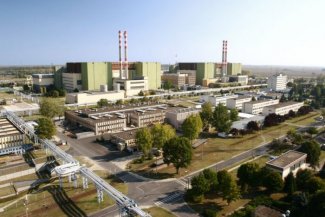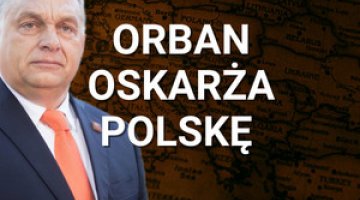Russia’s nuclear project in Hungary: France’s growing role

Despite the Russian invasion of Ukraine, the Hungarian government has declared it is fully determined to build the Paks II Nuclear Power Plant, the main contractor of which is Russia’s Rosatom. Several important decisions have been taken over recent weeks to remove the barriers to implementing the project. For example, Hungary and Russia have renegotiated the contracts that were signed nearly a decade ago and were initially accepted by the European Commission. When the German government refused to approve Siemens’ participation in the consortium supplying components to the power plant, France’s Framatome began playing a greater role in the project. According to the current plan, the construction of Paks II is set to start this year, and the first of the two units are to be completed in 2032. However, the project is still facing a great deal of technical, financial and political challenges that may hinder or even prevent it from being completed. To this end, Budapest is seeking the support of France; it hopes above all that Paris will keep resisting the proposals to impose EU sanctions on the Russian nuclear sector.
The expansion of the Paks power plant is the largest economic undertaking of Viktor Orbán’s cabinet, and at the same time a flagship project of Russian-Hungarian cooperation and a manifestation of Hungary’s continuing energy dependence on Russia. In addition, the Hungarian government intends to keep importing Russian oil and gas. According to the intergovernmental agreement signed in 2014, the project will be implemented by Rosatom and 80% financed with a loan of €10 billion granted by Russian banks, which Hungary is to repay by 2046. The agreement provides for the construction of two more VVER-1200 reactors with a total capacity of 2400 MW next to the Paks power plant, which consists of four units with a total capacity of 2000 MW and has been in operation since the 1980s. This power plant currently accounts for 40% of the country’s electricity production. The government plans to use nuclear energy as the key element of the country’s energy mix, as it is assumed to be cheaper to produce and will not generate greenhouse emissions. Its price is a decisive factor in the light of Fidesz’s promise to keep household utility fees low, which it has found hard to do due to the energy crisis. An increase in nuclear energy production coupled with the expansion of RES (especially solar panels) would make it possible to reach climate neutrality by 2050 in line with the EU’s requirements.
However, since the Hungarian-Russian intergovernmental agreement was signed, the project has encountered a great deal of problems, modifications and delays. The Paks II project, the implementation of which was entrusted to Rosatom without a tender being conducted, has raised serious objections in the EU since the very beginning. The European Commission has conducted three investigations concerning possible irregularities: these have scrutinised Rosatom’s temporary exclusive right to supply fuel, the possible violation of public procurement rules and the granting of illegal state aid. All of the proceedings were resolved in favour of Budapest, but it was obliged to essentially amend the assumptions of the project. The most important changes are the unbundling of the functions of the energy operator and seller, the obligation to sell part of the energy on the open market, and the ban on allocating profits to increase production capacity. Although the Hungarian Atomic Energy Authority (OAH) granted a construction permit in August 2022, it took an unexpectedly long time to verify the safety of the facility.[1]
The parties had to further amend the original agreement due to the ongoing Russian-Ukrainian war. Hungary’s foreign minister Péter Szijjártó met Rosatom’s CEO Aleksei Likhachev in Moscow in April this year. After the meeting he announced that the parties had agreed to modify the contracts on the construction and financing of the power plant in order to avoid sanctions; the details of these amendments were not revealed.[2]At the end of May this year, Szijjártó said that Brussels had approved the amendments, thus giving the green light to start work. A few days later, after Szijjártó’s conversation with Likhachev, it was even declared that the ground would be broken in July this year (Rosatom’s CEO also met Prime Minister Orbán at that time). However, representatives of the European Commission are now saying that Brussels’ consent is not full and final, since many issues that require clarification are still unresolved.[3] Therefore it is still uncertain when the new reactors will be put into operation, and their planned commissioning date is already ten years behind the original schedule.
The political costs
Hungary has remained committed to Rosatom’s Paks II project even though the political and security situation has changed fundamentally since the agreement was signed in January 2014, just before Russia’s annexation of Crimea. Since the invasion of Ukraine in February 2022, no international sanctions have been imposed on the Russian nuclear sector, despite appeals from Kyiv. However, Rosatom’s reputation has suffered greatly as it not only provides substantial profits to the regime and cooperates closely with the Russian arms industry, but it was also involved in the illegal takeover of the nuclear power plant in Zaporizhzhia. Finland, the only EU member state to have implemented a project similar to Paks II, terminated its contract with Rosatom for the construction of the Hanhikivi Nuclear Power Plant on the Gulf of Bothnia in May 2022.
Many European power plants some of those in France) are dependent on Rosatom at various stages of their nuclear fuel life cycle. In recent years, however, no EU member other than Hungary has entrusted this company with the construction of new infrastructure, while many EU countries have taken steps to phase out imports of nuclear fuel from Russia. Rosatom recently completed an investment technologically similar to Paks in Akkuyu, Turkey, as a result of which Ankara’s energy dependence on Moscow has increased.[4] As the Russian-Ukrainian war continues, the political cost of Budapest’s cooperation with Russia is rising. This involves the risk that Hungary’s nuclear sector will be subjected to EU restrictions, and losing even more confidence of its partners from the EU and NATO. It is uncertain whether Hungary will be able to continue a project of this magnitude in the face of economic hardship and sanctions. At the same time, it should be expected that Russia will seek to maintain its participation in its only nuclear project in an EU country, as this gives it tangible benefits, allowing it to maintain its political influence in Hungary and undermine the coherence of the EU’s energy policy.
France’s engagement
France’s role in the implementation of the Paks II project has grown since 24 February 2022. It has been assumed since 2019 that the automated process control systems (ACS TP) will be supplied by Framatome. This German-French consortium provided this type of equipment for the needs of Paks I, which has four operating reactors. However, it turned out in January this year that Berlin had refused to grant permission to Siemens Energy to supply components for the new power plant; politicians from the Green Party insisted on this due to the Russian invasion of Ukraine. Hungary therefore sought to give the French part of the company a greater role in the project. Orbán and Macron discussed this in Paris in March this year while Szijjártó was visiting the Flamanville Nuclear Power Plant; one month later the French government approved of Framatome’s participation in the joint project with Rosatom.[5]
Framatome’s role in the project as a subcontractor of the Russian-led project of Paks II is gradually expanding. The Financial Times indicated this back in March, citing anonymous sources in the Hungarian government.[6] The French contribution to the project has also increased significantly since France’s EDF took over part of the American company General Electric, which is to supply turbines to the unit. Furthermore, both France and Hungary are strongly opposed to the imposition of EU sanctions on the Russian nuclear energy sector, and Budapest hopes that Paris’s position on this issue will further solidify due to the French companies’ increasing involvement in Paks II.
In addition to cooperation in the field of nuclear energy, Hungary is strengthening ties with France in other fields. Since Germany announced the Zeitenwende, Hungary appears to be relying more strongly on Paris in foreign and security policy, and hopes that France will better understand its close relations with Russia and China. For example, given its strained relations with the US, Budapest has been eager to announce its support for French concepts concerning the EU’s strategic autonomy. It is also enhancing military cooperation with France and has declared an interest in France’s air defence initiative (including the purchase of Mistral systems).
Forecasts
Even though Hungary claims that it is still determined to implement the Paks II project together with Rosatom, it seems uncertain at this stage about the future of its nuclear cooperation with Russia. At the same time, it is cooperating more closely with France on the project. This allows it to bypass some of the obstacles linked to the project, while strengthening the coalition opposing sanctions on the Russian nuclear sector. Preparations are underway to extend the life of the plant’s operating reactors so that they can function until the 2050s; this would allow Hungary to do without the new units and gain more time for the potential selection of another contractor. However, the complete exclusion of Rosatom from the project is still the less likely scenario, and the current increase in France’s involvement is primarily intended to enable the implementation of the project based on cooperation with Russia. It is possible that the government in Budapest may be interested not so much in finalising Paks II as in extending its cooperation with Moscow; Hungary has been benefiting from a Russian loan since 2019, and the work on preparing the plant has proved lucrative for oligarchs linked to the government.
[1] A. Sadecki, ‘Węgry: zielone światło dla Rosatomu w Paks’, OSW, 31 August 2022, osw.waw.pl.
[2] I. Gizińska, F. Rudnik, A. Sadecki, ‘Szijjártó in Moscow: Hungary maintains its energy cooperation with Russia’, OSW, 14 April 2023, osw.waw.pl.
[3] ‘EC outlines approval grounds for Paks II contract amendments’, World Nuclear News, 30 May 2023, world-nuclear-news.org.
[4] Z. Krzyżanowska, F. Rudnik, ‘Turkey: first nuclear power plant under Russian rules’, OSW, 28 April 2023, osw.waw.pl.
[5] J.-B. Chastand, A. Pécout, P. Ricard, ‘Paris approves the building of Russian-led nuclear reactors in Hungary’, Le Monde, 28 April 2023 lemonde.fr/en.
[6] M. Dunai, H. Foy, L. Abboud, ‘Hungary in talks with France over role in Russian-led nuclear plant’, Financial Times, 23 March 2023, ft.com.




